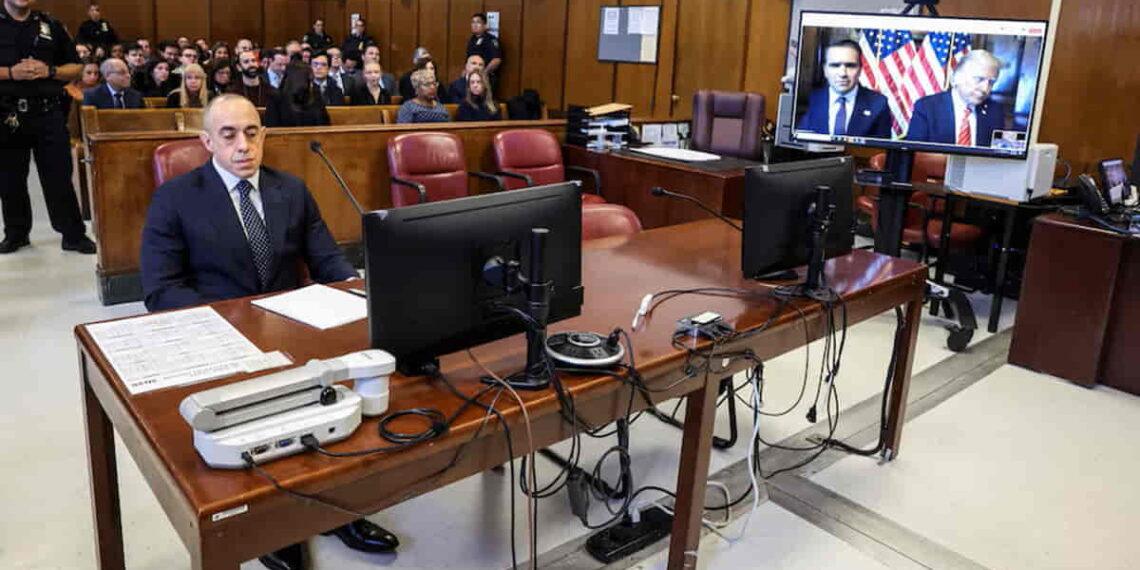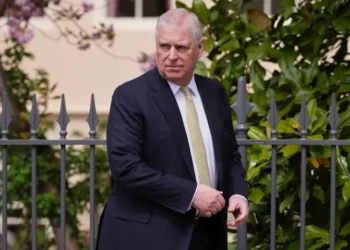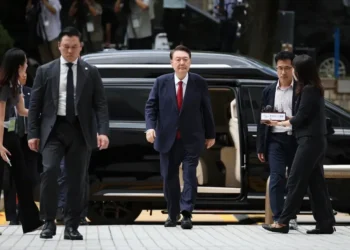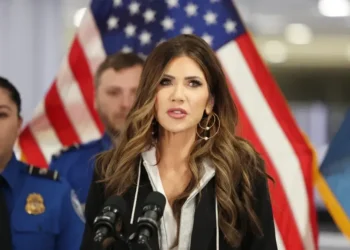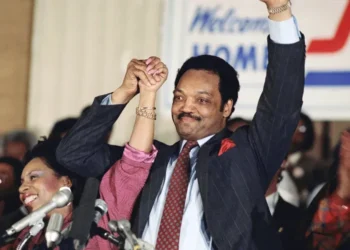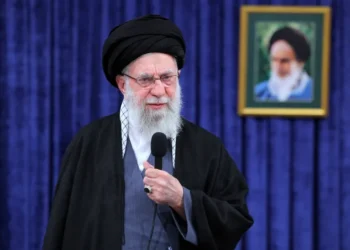Trump’s Sentencing Finalizes Conviction, Ending Tumultuous Chapter in His Return to the White House
After six weeks in a Manhattan courtroom last year for his criminal hush money trial, former President Donald Trump remained silent throughout the proceedings. However, during his sentencing on Friday, Trump broke his silence with a seven-minute speech, airing grievances about the criminal justice system and his conviction.
The Case Against Trump: A Recap
Trump had been convicted of falsifying business records as part of a scheme to influence the 2016 election. The case stemmed from the alleged payment to adult film actress Stormy Daniels, who claimed to have had an affair with Trump in 2006, shortly after the birth of his son. Initially facing up to four years in prison, the president-elect used the sentencing hearing to voice his frustrations and defend his actions.
Trump’s Grievances and Political Deflection
Appearing virtually from his Mar-a-Lago estate in Florida, Trump proclaimed his innocence and decried the trial as politically motivated. He accused prosecutors of launching a “witch hunt,” criticized his former lawyer, and even drew comparisons to ongoing national crises, such as natural disasters, wars, and inflation.
Trump suggested that his November electoral victory served as a form of political acquittal, claiming that the public’s support in his landslide win was a rejection of the “weaponization of government.”
“The people of our country got to see this firsthand… they voted, and I won… getting the largest number of votes by far, of any Republican candidate in history,” Trump said, reaffirming his belief that the case had no merit.
Judge Merchan’s Unprecedented Ruling
Due to Trump’s election victory and the legal immunity granted to the office of the president, Judge Juan Merchan issued an “unconditional discharge” with no punishment, allowing Trump to appeal the verdict. While Merchan acknowledged that Trump’s presidential status limited his sentencing options, he emphasized that the conviction was not erased by Trump’s election. The judge stressed that Trump’s actions were a “premeditated and continuous deception,” as found by a jury of twelve New Yorkers.
Merchan also pointed out that, while presidential protections were vast, they did not extend to erasing a jury’s verdict. He had previously criticized Trump for his “disdain for the Third Branch of government,” though he refrained from making explicit comments during Friday’s hearing.
Prosecution’s Critique of Trump’s Actions
Assistant Manhattan DA Joshua Steinglass was more direct, arguing that Trump’s actions caused lasting damage to the public’s perception of the criminal justice system. He accused Trump of engaging in a coordinated campaign to undermine the justice system and noted that, according to a probation officer, Trump views himself as above the law and refuses to accept responsibility for his actions.
Steinglass highlighted that Trump had repeatedly attacked the trial, calling it a “corrupt sham” and threatening to retaliate against prosecutors. He accused the defendant of deliberately fostering disdain for the justice system to further his own political agenda.
The Court’s Recommendation for No Punishment
Despite Steinglass’s strong words, the Manhattan district attorney’s office recommended no punishment for Trump, agreeing with Judge Merchan’s reasoning. Steinglass emphasized that the American public had the right to a presidency free from pending court obligations, with the recommendation aligned with the idea that Trump should not face sentence-related burdens while assuming office again.
A Final Gesture from the Judge
As the hearing came to a close, Judge Merchan, acknowledging the gravity of the situation, offered a final, somewhat cordial remark: “Sir, I wish you Godspeed as you assume your second term in office. Thank you.”
With the sentencing completed, Trump’s criminal conviction remains in place, but his legal immunity as president-elect, coupled with his planned appeal, leaves the final chapter of this case still open.
This article was rewritten by JournosNews.com based on verified reporting from trusted sources. The content has been independently reviewed, fact-checked, and edited for accuracy, neutrality, tone, and global readability in accordance with Google News and AdSense standards.
All opinions, quotes, or statements from contributors, experts, or sourced organizations do not necessarily reflect the views of JournosNews.com. JournosNews.com maintains full editorial independence from any external funders, sponsors, or organizations.
Stay informed with JournosNews.com — your trusted source for verified global reporting and in-depth analysis. Follow us on Google News, BlueSky, and X for real-time updates.
